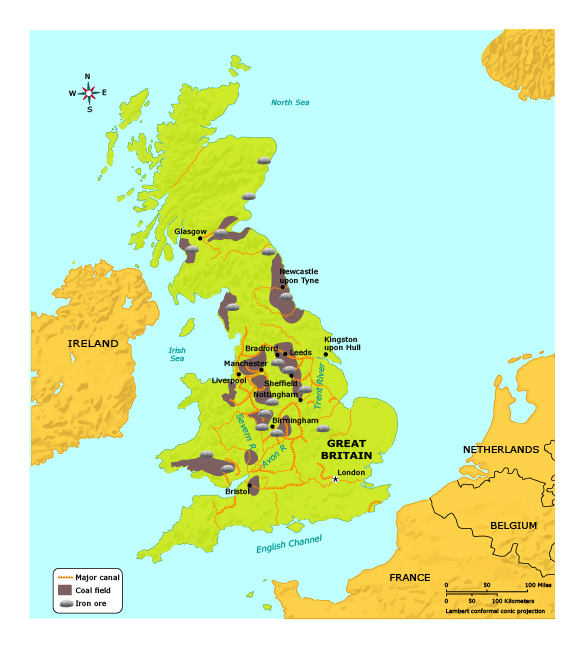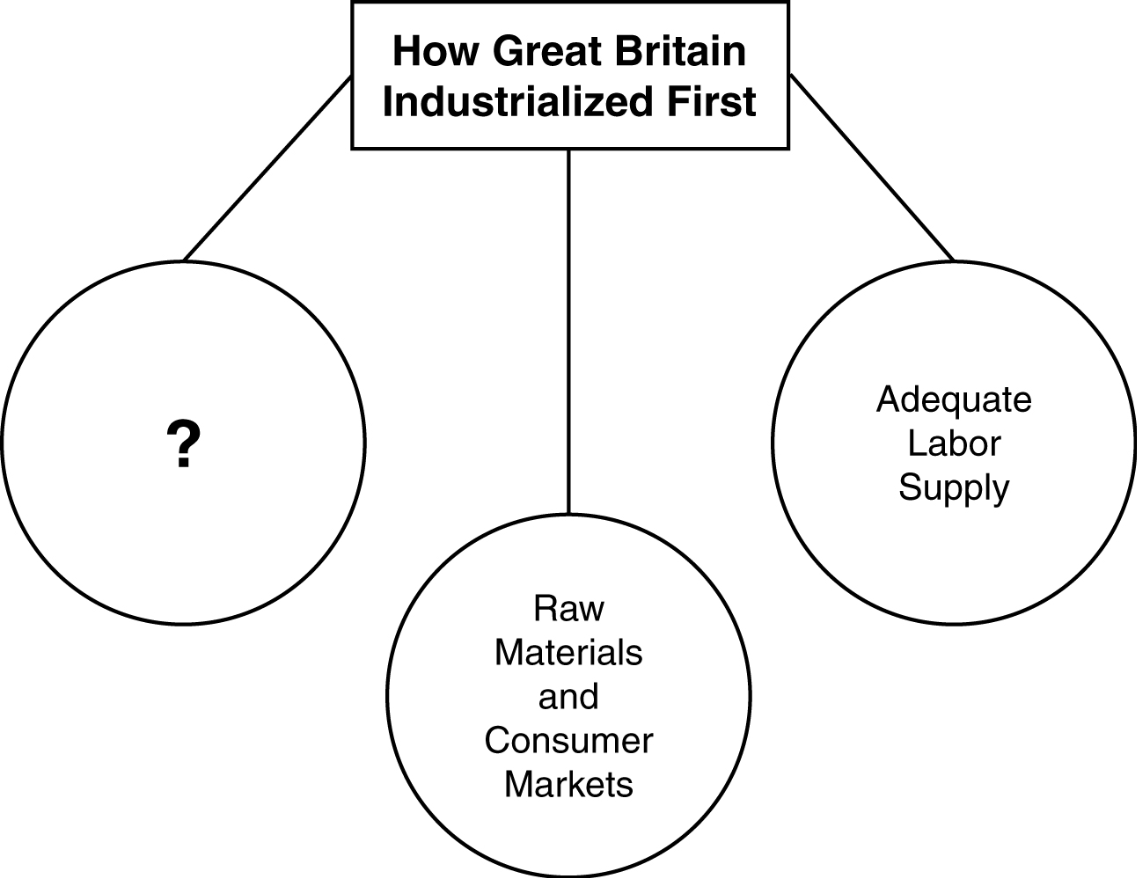"Industries had all the ________________ needed to produce goods and services"
Industries had all the FACTORS OF PRODUCTION needed to produce goods and services.
Bonus speed round!
List all 4 of them...
Textiles
A) fertile land
B) location by the ocean
C) an abundance of coal
D) a large population
C) an abundance of coal
"the natural harbors allowed ________ to easily trade goods."
merchant ships
Match the term to the definition:
A population shift from RURAL to URBAN and how society adapts to that chance
URBANIZATION
"more FOOD = more PEOPLE"
The increase in food production led to a population explosion.
Textile; productivity
Which element shown on the map best explains why the Industrial Revolution began in England?
A)The country was surrounded by water.
B) The country had key natural resources.
C) The country was close to a large continent.
D) The country was relatively small.

B) The country had key natural resources.
it increased coal mining.
it was used to power textile factories.
it was used to power trains to transport goods.
A) It controlled all the workings of business
B) It provided strict production levels for all factories
C) It gave businesses the freedom to grow and develop as they pleased
D) It charged high taxes on any new factories built in cities
C) It gave businesses the freedom to grow and develop as they pleased
crop rotation
Thomas Newcomen
A) Farmers could pay higher wages to laborers.
B) Farmers could experiment with new methods.
C) Businesses began to compete for the best crops.
D) Nobles began to hire additional farm workers.
B) Farmers could experiment with new methods.
land, labor, and capital
A) England was the only nation with a strong monarch who could demand that all citizens work in industry.
B) More wars were fought than in other nations and required the production of more weapons.
C) England had no colonies and thus could focus their finances on their own island.
D) The country was more stable than other nations and had protective laws from Parliament.
D) The country was more stable than other nations and had protective laws from Parliament.
A) England forbid their industrial engineers from leaving the country.
B)Other nations were behind technologically.
C) Other nations did not have the resources that Britain had.A) England forbid their industrial engineers from leaving the country.
many farmers/peasants then moved to towns to find work in industry.
Enclosure Movement / Enclosure Acts
navigable RIVERS and natural HARBORS
"The strong ____ system used _____ to spur industrial advancements"
2 points per word correct
Parliament (the British government) passed ___________ laws favoring business.
2 points for the term, 2 points if you can tell me what the term translates to!
Laissez-faire; "hands-off"
A) There was less demand for cash crops because people did not want to support the wealthy.
B) Landowners soon turned farmland into factories and promoted industry.
C) The government no longer needed to invest in agricultural development.
D) Small farmers lost land and migrated to work in industrial cities.
D) Small farmers lost land and migrated to work in industrial cities.

CAPITAL available for INVESTMENTS
and/or
Laissez-faire laws
What did England's colonies provide the empire that helped spur industrialization (2 correct answers)
Hint: think of the Mercantile System!
They provided a supply of raw materials to be processed.
They provided a large demand for goods
(buying finished products)
mercantile system
A) the British royal family
B) the British navy
C) the Catholic church
D) the new Parliament
B) the British navy